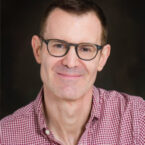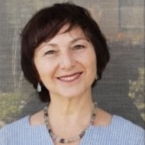Ben Medley, LCSW, Mary Androff, MD, Karen Pando-Mars, MFT, Benjamin Lipton, LCSW, Kate Halliday, LCSW
Friday – Monday
September 16, 2022 thru June 26, 2023
This course is sold out with a waitlist. Please email admin@aedpinstitute.org to add your name to the waitlist.
Pre-requisite: Level 1 AEDPers: licensed therapists who have taken AEDP Immersion.
This ES1 counts toward AEDP certification
This AEDP course is open to AEDP Immersion Grads: Licensed Mental Health Providers practicing legally in your state, province, or country, including Counselors, Doctors, Nurses, Psychoanalysts, Psychologists, Psychotherapists, Social Workers, other Behavioral Health Therapists and related professionals. If you have a question about the relevance of this course for you and/or your eligibility for this course please contact admin@aedpinstitute.org with your credentials before registering.
About Essential Skills (ES1): AEDP Essential Skills course will provide practical skills for the application of AEDP as well as a thorough immersion in the theory underlying the practice. Our aim is to teach, in both left-brained and right-brained ways, different types of clinical interventions so that participants will emerge with both an understanding and a felt sense of how to “do” AEDP. Each day’s teaching will include didactic presentations of theory along with video of actual sessions conducted by AEDP Faculty followed by small group experiential exercises.
Routine for each module: AEDP skills are introduced with their theoretical foundations and then with illustrations by way of clinical videotapes; skills are then practiced in group experiential exercises. In online courses, exceptionally effective experiential exercises are held in online “breakout rooms.”
Faculty, Experiential Assistants and Clinical Video: These are the hallmarks of all AEDP trainings. In AEDP, we pride ourselves in how thoroughly and deeply we seek to both undo professional aloneness and engage in rigorous clinical teaching. Our faculty are excellent as academics, clinicians and teachers. Participants deeply appreciate how effectively faculty presenters’ clinical video demonstrates “AEDP in action.” And faculty have skilled accompaniment from a large number of Experiential Assistants – up to and often including one Experiential Assistant for every four participants. Participants rave about the excellent attention and support they receive in this unique learning environment.
To see a listing of AEDP therapists who act as Experiential Assistants, click here.
Course Description
Description: AEDP Essential Skills, aimed at practitioners, will provide practical skills for the application of AEDP. Our aim is to teach, in both left-brained and right-brained ways, skill sets, concrete and specific. Different skill sets will be introduced, explained, illustrated and practiced each week, so that participants will emerge with both an understanding and a felt sense of how to practice AEDP. The basic skill sets necessary to practice AEDP will be introduced each week, with theoretical foundations and with videotapes and group experiential exercises in the afternoon.
In AEDP, we pride ourselves in how thoroughly and deeply we seek to both (i) undo professional aloneness and (ii) engage in rigorous clinical teaching with skilled accompaniment. We are proud to say that our ES courses feature a high number of highly skilled assistants.
What we consider AEDP’s “essential skills” will be didactically demonstrated and experientially explored so that participants develop both a felt sense and a cognitive understanding of them. A key component of the experiential practices is the opportunity to “try on” sets of interventions as a therapist and to receive them as a client. We have found that learning new skills can give rise to experiences of safety, attachment security, transformation, increased therapeutic courage, and related phenomena; precisely the kinds of experiences AEDP facilitates for its clients. Each day course faculty lead small groups in practicing essential AEDP skills. The concentrated time that participants spend together immersed in learning inevitably leads to the development of a culture of trust and generosity that allows for risk-taking and a supportive environment that is uniquely suited
Course Topics
Module 1: September 16 – 19, 2022 | Ben Medley, LCSW | 12:00 – 4:30 Eastern time USA + Canada
HEALING FROM THE GET-GO, UNDOING ALONENESS & THE CLINICAL ROADMAP for AEDP’s TRANSFORMATIONAL JOURNEY
Module 2: December 16 – 19, 2022 | Mary Androff, MD | 12:00 – 4:30 Eastern time USA + Canada
ATTACHMENT & RELATIONAL WORK: UNDOING ALONENESS IN CLINICAL ACTION
Module 3: February 3 – 6, 2023 | Karen Pando-Mars, MFT | 12:00 – 4:30 Eastern time USA + Canada
STATE 1: THE TOP OF THE TRIANGLE of EXPERIENCE WORKING WITH DEFENSE AND ANXIETY
Module 4: April 28 – May 1, 2023 | Benjamin Lipton, LCSW | 12:00 – 4:30 Eastern time USA + Canada
STATE 2 WORK: THE PROCESSING of CORE AFFECTIVE EXPERIENCE
Module 5: June 23 – 26, 2023 | Kate Haliday, LCSW | 11:00 – 3:30 Eastern time USA + Canada
THE PROCESSING of TRANSFORMATIONAL EXPERIENCE & THE INTEGRATION OF TRANSFORMATION INTO SELF STATE 3 & STATE 4 Work
Course Objectives
- Demonstrate an AEDP therapist stance: welcome, affirm, validate, orient
- Construct safety and undo aloneness
- Apply moment-to-moment tracking to clinical practice
- Construct dyadic safety and connection
- Build and rebuild a secure attachment
- Integrate healing and transformance from the get-go
- Classify different aspects within the Triangle of Experience, including both verbal and somatic processes, to optimize attunement and accelerate the healing process
- Analyze the 4 State Transformational Process: Working with relational trauma in a first session
- Integrate Meta-therapeutic processing and transformational processes
- Relate the experience of emotional experience: processing emotions to completion
- Define attachment styles and utilize different interventions according to attachment style
- Utilize various ways to regulate anxiety, bypass defenses and other inhibitory forces which block progress in therapy
- Describe how to regulate/alleviate anxiety and traces of shame
- Identify and access core affective experiences
- Identify expressions of transformance in clients
- Practice utilizing transformance strivings as a catalyst to maximize patient’s healing
Location
Location: Live Online and highly interactive
AEDP’s Live, Online Learning: Requirements & FAQ’s
Dates & Times
Important note, Module 5 starts at 11:00 am Eastern Time USA – all others start at noon
Friday – Monday 2022
12:00 – 4:30 Eastern time USA + Canada
September 16-19, December 16-19
Friday – Monday 2023
12:00 – 4:30 Eastern time USA + Canada
February 3-6, 2023, April 28 – May 1
11:00 – 3:30 Eastern time USA + Canada
June 23-26
Please double check the meeting times for your local time zone if not Eastern Time USA + Canada and please check closely for conflicts with Local Holidays, Religious Holidays, etc.
Registration, Course Fees and Scholarships
To attend you must be a Level 1 AEDP licensed therapist who has taken AEDP Immersion
This course is sold out with a waitlist. Please email admin@aedpinstitute.org to add your name to the waitlist.
- $3,200 USD Non-Member Course Fee
Payment plan: $500 due at registration – Call Karen Newell 866-992-9399
Are you a Member? Log in to get your Member discount
Sold OutNo longer accepting scholarship applications for this course. Thank you
Meet the Presenters
Posts not found
Posts not found

Benjamin Lipton, LCSW
Benjamin Lipton, LCSW, is a Senior and founding Faculty member of the AEDP Institute. He has been instrumental in the development and teaching of AEDP across the US and in Canada, Sweden, Israel, Norway, and Denmark. He also supervises individuals and small groups of clinicians learning AEDP around the world. A sought after teacher and speaker, Ben is known for his open and engaging style, his humor, and his particular ability to translate complex theoretical concepts into user-friendly, accessible and engaging learning experiences. Ben has edited a book and contributed many book chapters and articles in psychology and social service journals as well as mainstream magazines. His most recent publication is a chapter on therapeutic presence in Undoing Aloneness & the Transformation of Suffering Into Flourishing: AEDP 2.0 edited by Diana Fosha. During the height of the HIV/AIDS epidemic in the US, Ben was the Director of Clinical Services at Gay Men’s Health Crisis (GMHC), the world’s first and largest HIV/AIDS service organization. He has held adjunct faculty appointments at Columbia Presbyterian Department of Psychiatry and New York University School of Social Work. Ben maintains a private practice in the NYC area. (Read More…)
Sigal Bahat, MA
Sigal Bahat, MA is a faculty member of AEDP™ Institute and the Israeli Ambasador. She teaches and supervises AEDP, in Israel, US and internationally, and leads an Israeli AEDP Core Training group. She has a private practice in Israel and also works remotely. Sigal started her career as a Dance Movement Therapist, and then completed training both as an Expressive & Creative psychotherapist, and as a Bio-energetic Analyst. She is certified and has many years of experience as a teacher of somatic-mindfulness approaches.
The Alexander Technique, The Feldenkrais Method and Authentic Movement. Meeting AEDP and Dr. Diana Fosha met a decades-long quest to actively engage the intra-intimate-connections between psyche & soma.
Sigal on AEDP: “At last I met a model that made sense to me in the deepest manner, both theoretically and clinically – (Read More…)
Posts not found
More Information
Instructional Methodology: AEDP skills are introduced with their theoretical foundations and then with illustrations by way of clinical videotapes; skills are then practiced in group experiential exercises. In online courses, exceptionally effective experiential exercises are held in online “breakout rooms.”
Faculty, Experiential Assistants and Clinical Video: These are the hallmarks of all AEDP trainings. In AEDP, we pride ourselves in how thoroughly and deeply we seek to both undo professional aloneness and engage in rigorous clinical teaching. Our faculty are excellent as academics, clinicians and teachers. Participants deeply appreciate how effectively faculty presenters’ clinical video demonstrates “AEDP in action.” And faculty have skilled accompaniment from a large number of Experiential Assistants – up to and often including one Experiential Assistant for every three participants. Participants rave about the excellent attention and support they receive in this unique learning environment.
To see a listing of AEDP therapists who act as Experiential Assistants, click here.
Disability Access: If you require ADA accommodations please contact our office 30 days Or more before the event. We cannot ensure accommodations without adequate prior notification
Certification: Completion of this course does not guarantee certification. To be eligible for AEDP Certification, clinicians must demonstrate an understanding of the theoretical model and proficiency in applying AEDP interventions to diverse clinical populations, and an overall commitment to the AEDP mission, ethos and values. Certification requirements.
Attendance and Makeup Policy & Refunds:
Questions:
Course and all customer service related questions:
Please contact Customer Service Administrator
Marilia Rodriguez
admin@aedpinstitute.org
813-553-1294
